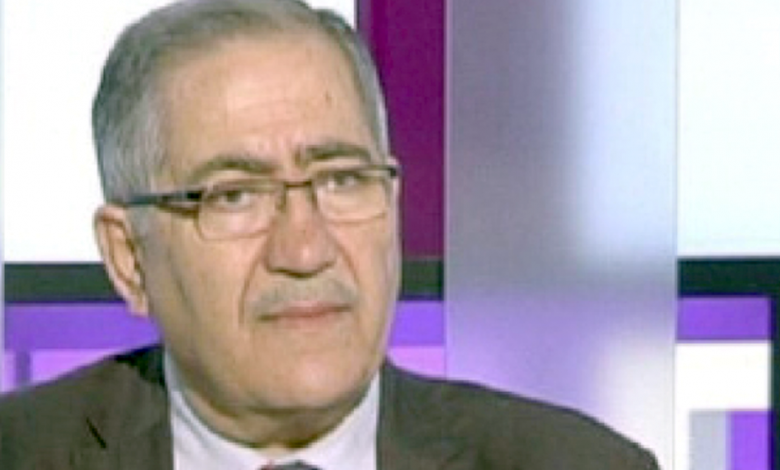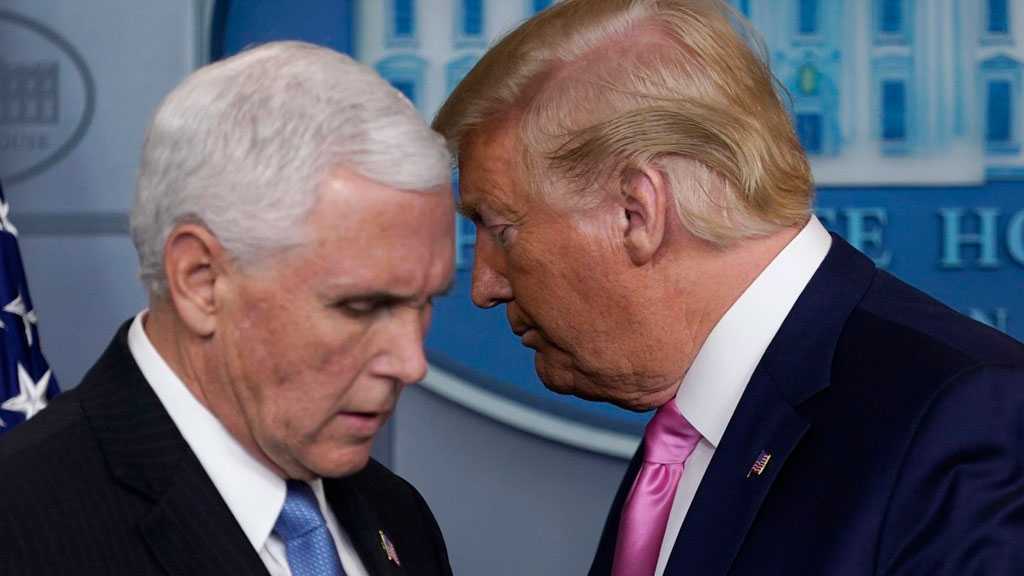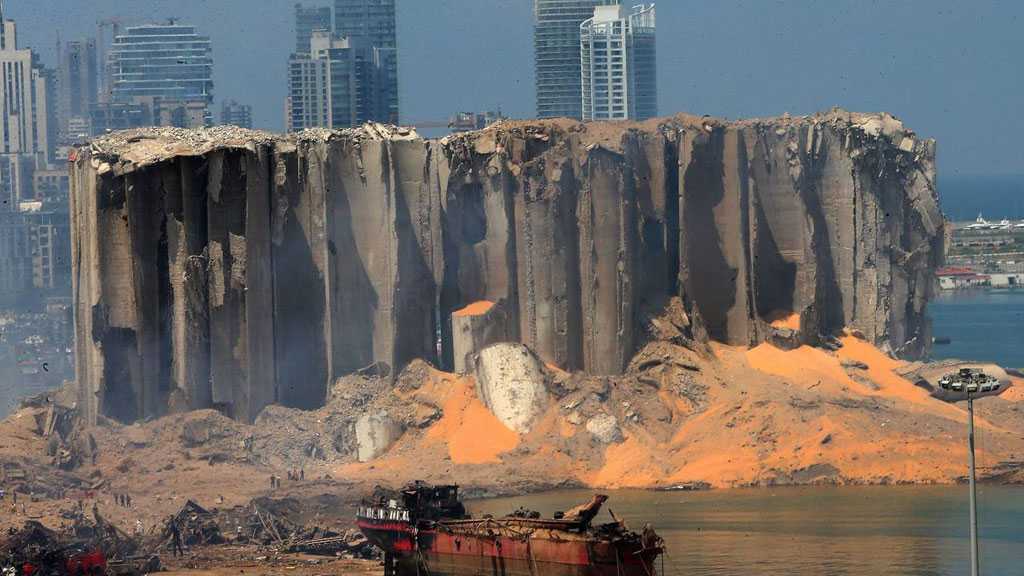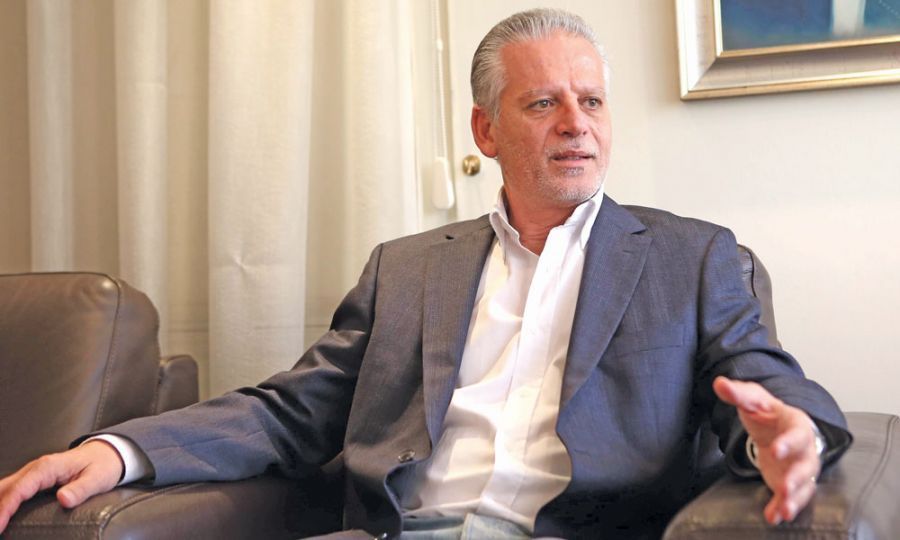
October 01, 2020
By Pepe Escobar, posted with permission and first posted at Asia Times
Few geopolitical hot spots across the planet may rival the Caucasus: that intractable, tribal Tower of Babel, throughout History a contentious crossroads of empires from the Levant and nomads from the Eurasian steppes. And it gets even messier when one adds the fog of war.
To try to shed some light into the current Armenia-Azerbaijan face off, let’s crisscross the basic facts with some essential deep background.
Late last month Ilham Aliyev, Azerbaijan’s proverbial “strongman”, in power since 2003, launched a de facto war on the territory of Nagorno-Karabakh held by Armenia.
At the collapse of the USSR, Nagorno-Karabakh had a mixed population of Azeri Shi’ites and Armenian Christians. Yet even before the collapse the Azerbaijani Army and Armenian independentists were already at war (1988-1994), which yielded a grim balance of 30,000 dead and roughly a million wounded.
The Republic of Nagorno-Karabakh declared independence in 1991: but that was not recognized by the “international community”. Finally there was a ceasefire in 1994 – with Nagorno-Karabakh entering the gray area/no man’s land of “frozen conflict”.
The problem is that in 1993, the United Nations had approved no less than four resolutions – 822, 853, 874 and 884 – establishing that Armenia should withdraw from what was deemed to be roughly 20% of Azerbaijani territory. This is at the core of Baku’s rationale to fight against what it qualifies as a foreign occupation army.
Yerevan’s interpretation though is that these four resolutions are null and void because Nagorno-Karabakh harbors an Armenian-majority population who wants to secede from Azerbaijan.
Historically, Artsakh is one of three ancient provinces of Armenia – rooted at least in the 5th century B.C. and finally established in 189 B.C. Armenians, based on DNA samples from excavated bones, argue they have been settled in Artsakh for at least 4,000 years.
Artsakh – or Nagorno-Karabakh – was annexed to Azerbaijan by Stalin in 1923. That set the stage for a future powder keg to inevitably explode.
It’s important to remember that there was no “Azerbaijan” nation-state until the early 1920s. Historically, Azerbaijan is a territory in northern Iran. Azeris are very well integrated within the Islamic Republic. So the Republic of Azerbaijan actually borrowed its name from their Iranian neighbors. In ancient history, the territory of the new 20th century republic was known as Atropatene, and Aturpakatan before the advent of Islam.
How the equation changed
Baku’s main argument is that Armenia is blocking a contiguous Azerbaijani nation, as a look in the map shows us that southwest Azerbaijan is de facto split all the way to the Iranian border.
And that plunges us necessarily into deep background. To clarify matters, there could not be a more reliable guide than a top Caucasus think tank expert who shared his analysis with me by email, but is insistent on “no attribution”. Let’s call him Mr. C.
Mr. C notes that, “for decades, the equation remained the same and the variables in the equation remained the same, more or less. This was the case notwithstanding the fact that Armenia is an unstable democracy in transition and Azerbaijan had much more continuity at the top.”
We should all be aware that “Azerbaijan lost territory right at the beginning of the restoration of its statehood, when it was basically a failed state run by armchair nationalist amateurs [before Heydar Aliyev, Ilham’s father, came to power]. And Armenia was a mess, too but less so when you take into consideration that it had strong Russian support and Azerbaijan had no one. Back in the day, Turkey was still a secular state with a military that looked West and took its NATO membership seriously. Since then, Azerbaijan has built up its economy and increased its population. So it kept getting stronger. But its military was still underperforming.”
That slowly started to change in 2020: “Basically, in the past few months you’ve seen incremental increases in the intensity of near daily ceasefire violations (the near-daily violations are nothing new: they’ve been going on for years). So this blew up in July and there was a shooting war for a few days. Then everyone calmed down again.”
All this time, something important was developing in the background: Armenian Prime Minister Nikol Pashinyan, who came to power in May 2018, and Aliyev started to talk: “The Azerbaijani side thought this indicated Armenia was ready for compromise (this all started when Armenia had a sort of revolution, with the new PM coming in with a popular mandate to clean house domestically). For whatever reason, it ended up not happening.”
What happened in fact was the July shooting war.
Don’t forget Pipelineistan
Armenian PM Pashinyan could be described as a liberal globalist. The majority of his political team is pro-NATO. Pashinyan went all guns blazing against former Armenian President (1998- 2008) Robert Kocharian, who before that happened to be, crucially, the de facto President of Nagorno-Karabakh.
Kocharian, who spent years in Russia and is close to President Putin, was charged with a nebulous attempt at “overthrowing the constitutional order”. Pashinyan tried to land him in jail. But even more crucial is the fact that Pashinyan refused to follow a plan elaborated by Russian Foreign Minister Sergey Lavrov to finally settle the Artsakh/Nagorno-Karabakh mess.
In the current fog of war, things are even messier. Mr. C stresses two points: “First, Armenia asked for CSTO protection and got bitch slapped, hard and in public; second, Armenia threatened to bomb the oil and gas pipelines in Azerbaijan (there are several, they all run parallel, and they supply not just Georgia and Turkey but now the Balkans and Italy). With regards to the latter, Azerbaijan basically said: if you do that, we’ll bomb your nuclear reactor.”
The Pipelineistan angle is indeed crucial: for years I have followed on Asia Times these myriad, interlocking oil and gas soap operas, especially the BTC (Baku-Tblisi-Ceyhan), conceived by Zbigniew Brzezinski to bypass Iran. I was even “arrested” by a BP 4X4 when I was tracking the pipeline on a parallel side road out of the massive Sangachal terminal: that proved British Petroleum was in practice the real boss, not the Azerbaijani government.
In sum, now we have reached the point where, according to Mr. C,
“Armenia’s saber rattling got more aggressive.” Reasons, on the Armenian side, seem to be mostly domestic: terrible handling of Covid-19 (in contrast to Azerbaijan), and the dire state of the economy. So, says Mr. C, we came to a toxic concourse of circumstances: Armenia deflected from its problems by being tough on Azerbaijan, while Azerbaijan just had had enough.
It’s always about Turkey
Anyway one looks at the Armenia-Azerbaijan drama, the key destabilizing factor is now Turkey.
Mr. C notes how, “throughout the summer, the quality of the Turkish-Azerbaijani military exercises increased (both prior to July events and subsequently). The Azerbaijani military got a lot better. Also, since the fourth quarter of 2019 the President of Azerbaijan has been getting rid of the (perceived) pro-Russian elements in positions of power.” See, for instance, here.
There’s no way to confirm it either with Moscow or Ankara, but Mr. C advances what President Erdogan may have told the Russians: “We’ll go into Armenia directly if a) Azerbaijan starts to lose, b) Russia goes in or accepts CSTO to be invoked or something along those lines, or c) Armenia goes after the pipelines. All are reasonable red lines for the Turks, especially when you factor in the fact that they don’t like the Armenians very much and that they consider the Azerbaijanis brothers.”
It’s crucial to remember that in August, Baku and Ankara held two weeks of joint air and land military exercises. Baku has bought advanced drones from both Turkey and Israel. There’s no smokin’ gun, at least not yet, but Ankara may have hired up to 4,000 Salafi-jihadis in Syria to fight – wait for it – in favor of Shi’ite-majority Azerbaijan, proving once again that “jihadism” is all about making a quick buck.
The United Armenian Information Center, as well as the Kurdish Afrin Post, have stated that Ankara opened two recruitment centers – in Afrin schools – for mercenaries. Apparently this has been a quite popular move because Ankara slashed salaries for Syrian mercenaries shipped to Libya.
There’s an extra angle that is deeply worrying not only for Russia but also for Central Asia. According to the former Foreign Minister of Nagorno-Karabakh, Ambassador Extraordinary Arman Melikyan, mercenaries using Azeri IDs issued in Baku may be able to infiltrate Dagestan and Chechnya and, via the Caspian, reach Atyrau in Kazakhstan, from where they can easily reach Uzbekistan and Kyrgyzstan.
That’s the ultimate nightmare of the Shanghai Cooperation Organization (SCO) – shared by Russia, China and the Central Asian “stans”: a jihadi land – and (Caspian) sea – bridge from the Caucasus all the way to Central Asia, and even Xinjiang.
What’s the point of this war?
So what happens next? A nearly insurmountable impasse, as Mr. C outlines it:
1. “The peace talks are going nowhere because Armenia is refusing to budge (to withdraw from occupying Nagorno-Karabakh plus 7 surrounding regions in phases or all at once, with the usual guarantees for civilians, even settlers – note that when they went in in the early 1990s they cleansed those lands of literally all Azerbaijanis, something like between 700,000 and 1 million people).”
2. Aliyev was under the impression that Pashinyan “was willing to compromise and began preparing his people and then looked like someone with egg on his face when it didn’t happen.”
3. “Turkey has made it crystal clear it will support Azerbaijan unconditionally, and has matched those words with deeds.”
4. “In such circumstances, Russia got outplayed – in the sense that they had been able to play off Armenia against Azerbaijan and vice versa, quite successfully, helping to mediate talks that went nowhere, preserving the status quo that effectively favored Armenia.”
And that brings us to the crucial question. What’s the point of this war?
Mr. C: “It is either to conquer as much as possible before the “international community” [in this case, the UNSC] calls for / demands a ceasefire or to do so as an impetus for re-starting talks that actually lead to progress. In either scenario, Azerbaijan will end up with gains and Armenia with losses. How much and under what circumstances (the status and question of Nagorno-Karabakh is distinct from the status and question of the Armenian occupied territories around Nagorno-Karabakh) is unknown: i.e. on the field of battle or the negotiating table or a combo of both. However this turns out, at a minimum Azerbaijan will get to keep what it liberated in battle. This will be the new starting point. And I suspect that Azerbaijan will do no harm to the Armenian civilians that stay. They’ll be model liberators. And they’ll take time to bring back Azerbaijani civilians (refugees/IDPs) to their homes, especially in areas that would become mixed as a result of return.”
So what can Moscow do under these circumstances? Not much,
“except to go into Azerbaijan proper, which they won’t do (there’s no land border between Russia and Armenia; so although Russia has a military base in Armenia with one or more thousand troops, they can’t just supply Armenia with guns and troops at will, given the geography).”
Crucially, Moscow privileges the strategic partnership with Armenia – which is a member of the Eurasia Economic Union (EAEU) – while meticulously monitoring each and every NATO-member Turkey’s movement: after all, they are already in opposing sides in both Libya and Syria.
So, to put it mildly, Moscow is walking on a geopolitical razor’s edge. Russia needs to exercise restraint and invest in a carefully calibrated balancing act between Armenia and Azerbaijan; must preserve the Russia-Turkey strategic partnership; and must be alert to all, possible US Divide and Rule tactics.
Inside Erdogan’s war
So in the end this would be yet another Erdogan war?
The inescapable Follow the Money analysis would tells us, yes. The Turkish economy is an absolute mess, with high inflation and a depreciating currency. Baku has a wealth of oil-gas funds that could become readily available – adding to Ankara’s dream of turning Turkey also into an energy supplier.
Mr. C adds that anchoring Turkey in Azerbaijan would lead to “the creation of full-fledged Turkish military bases and the inclusion of Azerbaijan in the Turkish orbit of influence (the “two countries – one nation” thesis, in which Turkey assumes supremacy) within the framework of neo-Ottomanism and Turkey’s leadership in the Turkic-speaking world.”
Add to it the all-important NATO angle. Mr. C essentially sees it as Erdogan, enabled by Washington, about to make a NATO push to the east while establishing that immensely dangerous jihadi channel into Russia: “This is no local adventure by Erdogan. I understand that Azerbaijan is largely Shi’ite Islam and that will complicate things but not render his adventure impossible.”
This totally ties in with a notorious RAND report that explicitly details how “the United States could try to induce Armenia to break with Russia” and “encourage Armenia to move fully into the NATO orbit.”
It’s beyond obvious that Moscow is observing all these variables with extreme care. That is reflected, for instance, in how irrepressible Foreign Ministry spokeswoman Maria Zakharova, earlier this week, has packaged a very serious diplomatic warning: “The downing of an Armenian SU-25 by a Turkish F-16, as claimed by the Ministry of Defense in Armenia, seems to complicate the situation, as Moscow, based on the Tashkent treaty, is obligated to offer military assistance to Armenia”.
It’s no wonder both Baku and Yerevan got the message and are firmly denying anything happened.
The key fact remains that as long as Armenia proper is not attacked by Azerbaijan, Russia will not apply the CSTO treaty and step in. Erdogan knows this is his red line. Moscow has all it takes to put him in serious trouble – as in shutting off gas supplies to Turkey. Moscow, meanwhile, will keep helping Yerevan with intel and hardware – flown in from Iran. Diplomacy rules – and the ultimate target is yet another ceasefire.
Pulling Russia back in
Mr. C advances the strong possibility – and I have heard echoes from Brussels – that “the EU and Russia find common cause to limit Azerbaijani gains (in large part because Erdogan is no one’s favorite guy, not just because of this but because of the Eastern Med, Syria, Libya).”
That brings to the forefront the renewed importance of the UNSC in imposing a ceasefire. Washington’s role at the moment is quite intriguing. Of course, Trump has more important things to do at the moment. Moreover, the Armenian diaspora in the US swings drastically pro-Democrat.
Then, to round it all up, there’s the all-important Iran-Armenia relationship. Here is a forceful attempt to put it in perspective.
As Mr. C stresses, “Iran favors Armenia, which is counter-intuitive at first sight. So the Iranians may help the Russians out (funneling supplies), but on the other hand they have a good relationship with Turkey, especially in the oil and gas smuggling business. And if they get too overt in their support, Trump has a casus belli to get involved and the Europeans may not like to end up on the same side as the Russians and the Iranians. It just looks bad. And the Europeans hate to look bad.”
We inevitably come back to the point that the whole drama can be interpreted from the perspective of a NATO geopolitical hit against Russia – according to quite a few analyses circulating at the Duma.
Ukraine is an absolute black hole. There’s the Belarus impasse. Covid-19. The Navalny circus. The “threat” to Nord Stream-2.
To pull Russia back into the Armenia-Azerbaijan drama means turning Moscow’s attention towards the Caucasus so there’s more Turkish freedom of action in other theaters – in the Eastern Mediterranean versus Greece, in Syria, in Libya. Ankara – foolishly – is engaged in simultaneous wars on several fronts, and with virtually no allies.
What this means is that even more than NATO, monopolizing Russia’s attention in the Caucasus most of all may be profitable for Erdogan himself. As Mr. C stresses, “in this situation, the Nagorno-Karabakh leverage/’trump card’ in the hands of Turkey would be useful for negotiations with Russia.”
No question: the neo-Ottoman sultan never sleeps.
Related



















